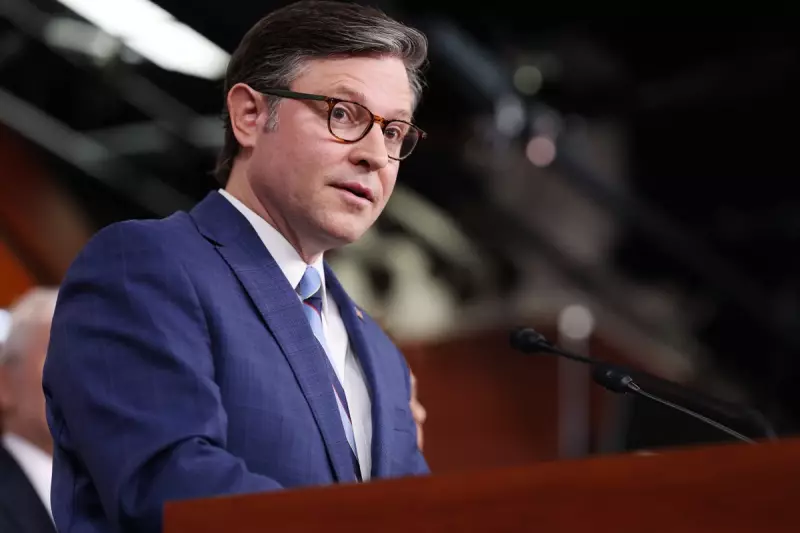
House Speaker Mike Johnson has ignited a political firestorm by suggesting that former President Donald Trump might legitimately serve a third term in the White House, despite clear constitutional restrictions limiting presidents to two terms.
Constitutional Concerns Raised
During a recent interview, Johnson argued that Trump's first term was "stolen" from him due to alleged election interference, implying this could justify extending his time in office. This controversial statement directly challenges the 22nd Amendment of the US Constitution, which explicitly states that "no person shall be elected to the office of the President more than twice."
Legal Experts Sound Alarm
Constitutional scholars and political analysts have expressed deep concern over Johnson's remarks. The suggestion that any president could serve beyond the two-term limit sets a dangerous precedent that undermines democratic norms and the rule of law.
Legal experts emphasise that the 22nd Amendment contains no exceptions for circumstances like those described by Johnson. The amendment was ratified in 1951 specifically to prevent the kind of extended presidential rule that the nation's founders feared.
Political Fallout Intensifies
The comments come at a sensitive time in American politics, with Trump currently campaigning for the 2024 presidential election. Johnson's statement has drawn criticism from across the political spectrum, with opponents accusing him of undermining democratic principles to support his political ally.
Even within Republican circles, some have expressed discomfort with the suggestion, recognising the potential damage to the party's credibility on constitutional matters.
Historical Context Matters
The two-term limit became a cornerstone of American democracy after Franklin D. Roosevelt's unprecedented four terms in office. The 22nd Amendment was designed to ensure regular leadership transitions and prevent the concentration of executive power.
Johnson's comments have raised questions about the Republican leadership's commitment to these fundamental democratic safeguards, setting the stage for continued debate about the boundaries of presidential power in the United States.





